Set Your Watch with B'nai Elim Jerusalem Time
Jerusalem On Line - Channel 2 News from Israel
UN Doomsday Treaty With Ginny Simone
12 November 2008
OUTLAW REGIME EXTENDS ITS TENTACLES
Iran's Latin America push
As Washington ignores the region, Tehran has been making friends and influencing nations.
By John Kiriakou
Iran, the ultimate mischief maker with global reach, astounding patience, a shameless marriage to mayhem and terrorism, and interests that fall squarely in opposition to those of the United States, is making major diplomatic inroads under Washington's nose.
It's amazing, really. Iran, after all, is regarded by most of the world as an outlaw country. Sanctions are in place on much of its military-industrial complex, and international loan guarantees are virtually impossible to come by. The Iranian economy is in tatters. Even while $100-plus oil was enriching most producers in the region, Iran's low-tech, outdated industry was barely profiting. In fact, 6% of the country's gasoline is imported.
Nevertheless, over the last year, Iran has worked diligently to expand relations with a host of Latin American countries, most of which have populist leaders who harbor a strong distrust of the United States and are looking for a powerful friend to help them rebuff Washington's influence.
Venezuelan President Hugo Chavez, for instance, has held up his close ties with Iran as an example of what his revolution can do for the region. He has much to show for it, including an Iranian ammunition factory, a car assembly plant, a cement factory and other such examples of Iranian involvement. And just to make sure the U.S. can't interfere (as it has in the past), Iran Air initiated direct air service between Tehran, Damascus and Caracas.
Then there's Paraguay's new president, Fernando Lugo Mendez, who was lauded in the Iranian media as "an enemy of the Great Satan" after naming Hezbollah sympathizer and fundraiser Alejandro Hamed Franco as the country's new foreign minister. Hezbollah -- which is Iranian funded and supported -- already has a well-documented presence in Paraguay, and the U.S. State Department has banned the minister from entering the United States or from flying on a U.S. airline.
Bolivian President Evo Morales jumped into Iran's lap even more quickly than his neighbors, ordering his foreign minister to lift visa restrictions on Iranian citizens in exchange for a $1.1-billion Iranian investment in Bolivia's gas facilities. Morales then gushed that Bolivia would move its only embassy in the Middle East from Cairo to Tehran. Iranian state television even agreed to provide Bolivian state television with Spanish-language programming, making it that much easier for every Bolivian to receive Iranian-produced news and documentary shows -- i.e. propaganda.
The real danger here doesn't have to do with an arcane diplomatic battle over who has more friends in Latin America. The problem is visa-free Iranian travel and the potential creation of a terrorist base of operations in the United States' backyard. If anyone with an Iranian passport may enter Bolivia without a visa or any further documentation, the country will soon be open to covert officers of Iran's Ministry of Intelligence and Security, its Islamic Revolutionary Guard, which the State Department recently declared a terrorist organization, and the Quds Force, an Iranian military group whose mandate is to spread Islamic revolution around the world.
A further danger is if other Latin American countries follow the Bolivian lead and lift visa restrictions. Iran already has proved what it can do in Latin America with visa restrictions. In 1994, Iranian agents worked with Hezbollah terrorists to bomb a Jewish association's community center in Argentina, killing 85 people and wounding hundreds. An established Iranian intelligence presence traveling freely throughout Latin America would make counter-terrorism efforts in the region much more difficult.
The United States still has an opportunity to stop the Iranians in their tracks in Latin America. But it's a big job. The growing Iranian influence -- inconceivable a decade ago -- is the result of the decision by the United States to stop paying attention to the region. And it will only be reversed if the U.S. changes its policy.
First, the new president must reverse the Bush administration's policy of ignoring Latin America and instead engage those countries in active diplomacy. Political and economic relations must improve to the point at which there is simply no benefit to breaking bread with Iran. Diplomacy will be slow, difficult and probably expensive. Iran is spending billions of dollars on the continent, and the U.S. must do the same. Trade agreements must be negotiated, an immigration policy must be conceived and implemented, and the new administration must pay our neighbors the attention that is necessary to win them over.
The only alternative is yet another front in the ongoing battle against terrorism.
John Kiriakou, now in the private sector, served as a CIA counter-terrorism official from 1998-2004.
As Washington ignores the region, Tehran has been making friends and influencing nations.
By John Kiriakou
Iran, the ultimate mischief maker with global reach, astounding patience, a shameless marriage to mayhem and terrorism, and interests that fall squarely in opposition to those of the United States, is making major diplomatic inroads under Washington's nose.
It's amazing, really. Iran, after all, is regarded by most of the world as an outlaw country. Sanctions are in place on much of its military-industrial complex, and international loan guarantees are virtually impossible to come by. The Iranian economy is in tatters. Even while $100-plus oil was enriching most producers in the region, Iran's low-tech, outdated industry was barely profiting. In fact, 6% of the country's gasoline is imported.
Nevertheless, over the last year, Iran has worked diligently to expand relations with a host of Latin American countries, most of which have populist leaders who harbor a strong distrust of the United States and are looking for a powerful friend to help them rebuff Washington's influence.
Venezuelan President Hugo Chavez, for instance, has held up his close ties with Iran as an example of what his revolution can do for the region. He has much to show for it, including an Iranian ammunition factory, a car assembly plant, a cement factory and other such examples of Iranian involvement. And just to make sure the U.S. can't interfere (as it has in the past), Iran Air initiated direct air service between Tehran, Damascus and Caracas.
Then there's Paraguay's new president, Fernando Lugo Mendez, who was lauded in the Iranian media as "an enemy of the Great Satan" after naming Hezbollah sympathizer and fundraiser Alejandro Hamed Franco as the country's new foreign minister. Hezbollah -- which is Iranian funded and supported -- already has a well-documented presence in Paraguay, and the U.S. State Department has banned the minister from entering the United States or from flying on a U.S. airline.
Bolivian President Evo Morales jumped into Iran's lap even more quickly than his neighbors, ordering his foreign minister to lift visa restrictions on Iranian citizens in exchange for a $1.1-billion Iranian investment in Bolivia's gas facilities. Morales then gushed that Bolivia would move its only embassy in the Middle East from Cairo to Tehran. Iranian state television even agreed to provide Bolivian state television with Spanish-language programming, making it that much easier for every Bolivian to receive Iranian-produced news and documentary shows -- i.e. propaganda.
The real danger here doesn't have to do with an arcane diplomatic battle over who has more friends in Latin America. The problem is visa-free Iranian travel and the potential creation of a terrorist base of operations in the United States' backyard. If anyone with an Iranian passport may enter Bolivia without a visa or any further documentation, the country will soon be open to covert officers of Iran's Ministry of Intelligence and Security, its Islamic Revolutionary Guard, which the State Department recently declared a terrorist organization, and the Quds Force, an Iranian military group whose mandate is to spread Islamic revolution around the world.
A further danger is if other Latin American countries follow the Bolivian lead and lift visa restrictions. Iran already has proved what it can do in Latin America with visa restrictions. In 1994, Iranian agents worked with Hezbollah terrorists to bomb a Jewish association's community center in Argentina, killing 85 people and wounding hundreds. An established Iranian intelligence presence traveling freely throughout Latin America would make counter-terrorism efforts in the region much more difficult.
The United States still has an opportunity to stop the Iranians in their tracks in Latin America. But it's a big job. The growing Iranian influence -- inconceivable a decade ago -- is the result of the decision by the United States to stop paying attention to the region. And it will only be reversed if the U.S. changes its policy.
First, the new president must reverse the Bush administration's policy of ignoring Latin America and instead engage those countries in active diplomacy. Political and economic relations must improve to the point at which there is simply no benefit to breaking bread with Iran. Diplomacy will be slow, difficult and probably expensive. Iran is spending billions of dollars on the continent, and the U.S. must do the same. Trade agreements must be negotiated, an immigration policy must be conceived and implemented, and the new administration must pay our neighbors the attention that is necessary to win them over.
The only alternative is yet another front in the ongoing battle against terrorism.
John Kiriakou, now in the private sector, served as a CIA counter-terrorism official from 1998-2004.
Subscribe to:
Post Comments (Atom)
Colonel Richard Kemp, British Army - Comment on the IDF's Actions in Gaza
Radical Islams Plans for Western Civilization
THE THIRD JIHAD - WATCH THIS IMPORTANT FILM NOW - FREE
Obama's true agenda...Throw Israel Under the Bus
****Regarding Obama’s Speech before the U.N. Obama has surpassed the peanut farmer Jimmy Carter as the worst and most anti-Israel, anti-Semitic, Arabist President who has ever occupied the White House. Not only is he is a narcissistic moron who is dragging America into an abyss; Obama is the most dangerous threat to World Freedom, Liberty and Western Civilization since Hitler. (Blogmaster)
Senator Joe Leiberman 'Islamist Extremist Regime'
JOHN VOIGHT ON OBAMA'S DISTAIN FOR ISRAEL
CHAZAK CHAZAK
ON THE PATH TO MUSLIM DOMINATION - REVERSABLE? STOPPABLE?
2 STATE SOLUTION - COMMENTARY BY THE "18"
A message to the Jewish people and the entire world
Chronicles I - 16:15-18: "Forever remember His covenant that he commanded forever; That He made with Abraham and swore to Isaac; and confirmed in a decree for Jacob, for Israel, as an eternal covenant; saying to You I will give the Land of Cannan as your alloted heritage"
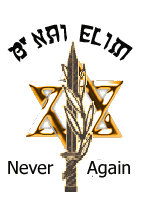














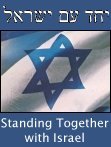

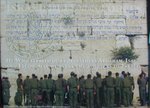

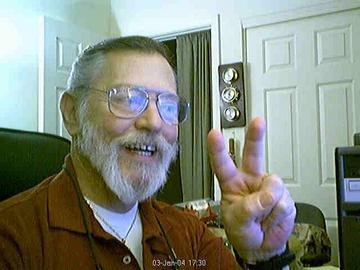






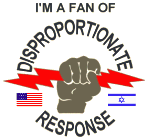





 While doing IDF (Israel Defence Forces) reserve duty on a mountain overlooking the
While doing IDF (Israel Defence Forces) reserve duty on a mountain overlooking the 

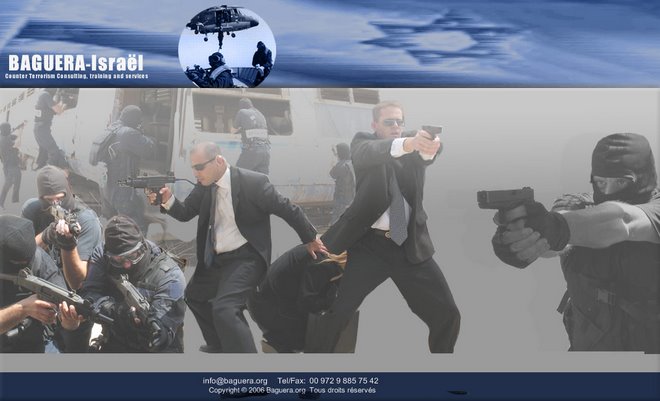



LA VERDAD SOBRE EL OBISPO:
ReplyDeleteTodo el andamiaje de la CIA y sus extensiones y derivados, como USAID, la National Endowment for Democracy y la prensa adicta al imperio, se jugó por el obispo Fernando Lugo el 20 de abril.
En Paraguay, llamó la atención que las ONGs recibieran fuertes donaciones a partir de la llegada al país del embajador James Cason, un conocido desestabilizador apadrinado por Otto Reich. El objetivo de la operación encubierta era sufragar la alternancia en el poder, ubicando al obispo Fernando Lugo en la presidencia de Paraguay.
Entre las numerosas organizaciones beneficiarias de estos dólares distribuidos por la administración de George W. Bush que apoyaron a la campaña del obispo, sobresalieron Gestión Local y la Casa de la Juventud, que financiaron con fondos de USAID e IAF a los movimientos Tekojoja y Pmas, como en Nicaragua la NED y otros organismos alternativos de la CIA propiciaron la elección de Violeta Chamorro en 1989.
Las organizaciones no gubernamentales y voluntarias –lo que hoy conocemos por sociedad civil— son conocidas como una extensión de las políticas neoliberales de EE UU en todo el mundo.
La CIA y la US Agency for International Development (USAID ó AID) tienen un protagonismo central en el esquema de promover las ideas y hechos políticos favorables al imperio, y a ellas se añadió un nuevo organismo, creado en 1983, bautizado como The National Endowment for Democracy (NED).
En Paraguay, la NED ejerce un control total sobre la prensa mediática, a la que presenta listas indicando cuáles son los referentes políticos que puede promocionar. Son los principales referentes de la NED los propietarios de ABC color y radio Ñandutí, Aldo Zucolillo y Humberto Rubín, dueños de gran parte de lo que en el país se puede decir. En Brasil, a comienzos de los 60, se utilizaron idénticas operaciones de la CIA junto a las de la sociedad civil opuesta al gobierno, con el resultado de provocar el golpe militar de 1964 contra el presidente Joâo Goulart, que dio comienzo a 20 años de una represión política indescriptiblemente brutal.
En fechas más recientes coordinaron un golpe mediático contra el gobierno de Raúl Cubas en Paraguay (marzo de 1999) y aceitaron a la sociedad civil de oposición al gobierno venezolano de Hugo Chávez, donde el papel de organismos gubernamentales estadounidenses, la CIA y otros como la AID y la NED detrás del fallido golpe de estado de abril de 2002 fue evidente.
El embajador norteamericano James Cason, como un flautista de Hamelín dedicado a cantar folklore paraguayo, fue determinante para alinear a todas las ONGs y fundaciones que reciben dólares americanos detrás del clérigo-presidente, sobrino del agente de la CIA Epifanio Méndez (delatado por Agee) y que perpetúa hoy la tradición familiar.
Entre las organizaciones aparecieron incluso grupos de feministas, que se vieron obligadas a impulsar una candidatura de un obispo católico, a pesar del clásico antagonismo con el Vaticano.
Entre estas supuestas organizaciones civiles estuvieron las feministas de convicciones subsidiadas por USAID como las Mujeres Políticas en Red, Parlamento Mujer, Red de Mujeres Políticas, Red de Mujeres Munícipes del Paraguay (RMMP), Coordinadora Interpartidaria de Mujeres del Paraguay (CIMPAR),), Mujeres Políticas por la Democracia y el Desarrollo,etc.
Son sufragadas desde la embajada norteamericana además de las redes de mujeres, Ideco (Roberto Ferreira), el Partido Demócrata Cristiano, Partido Encuentro Nacional, Patria Querida, el grupo de adherentes del Partido Unace que lidera Emma Rolón, la Red de Contralorías ciudadanas del Paraguay, la Contraloría Ciudadana de Ypané, Afosci, CIDSEP, CISNI, Fedem, Transparencia Paraguay, Semillas para la Democracia, radio Los Angeles, Radio Comunitaria de Villa Elisa, Fundación Tierra Nueva y GEAM, todos estos grupos aglutinados en el Grupo impulsor para la Regulación del Financiamiento Político en Paraguay.
La nómina sigue con Sakã (transparencia, en guaraní), integrada por cinco organizaciones no gubernamentales, Gestión Local, vinculada al Moviendo Tekojoja. Los "proyectistas" son Raúl Monte Domecq y Guillermina Kanonnikoff).
Otros grupos paraguayos financiados por extensiones de la CIA son Decidamos, Instituto de Geopolítica y Estudios Internacionales (IPEGEI), Radio CARITAS, Mujeres Por la Democracia, Centro Paraguayo de Estudios Sociológicos Fundación Paraguaya para la Cooperación y Desarrollo, Centro de Estudios Democráticos (CED), Centro de Información y Recursos para el Desarrollo, Instituto de derecho y Economía Ambiental, Centro de Estudios y Formación para el Ecodesarrollo, Asociación de Empresarios, Comité Paraguay-Kansas, Asociación Afro Paraguaya Kamba Cua, Centro Interdisciplinario de Derecho Social y Economía Política, Fundación Arlequín Teatro", Casa de la Juventud – Paraguay, cuna del Pmas de Camilo Soares, Cooperativa La Norteña y la Escuela Agrícola de Carumbey, Instituto de Estudios Comparados en Ciencias Penales y Sociales.
En el marco de la campaña pro-obispo, maletines de George W. Bush ingresaron en forma encubierta en Paraguay, yendo a parar a los bolsillos de los partidarios del obispo de los pobres y teólogo de la liberación, el marxista clérigo-presidente Fernando Lugo.
Por ejemplo, los 45,226.96 dólares que en nombre del Plan Umbral recibió recientemente la guevarista Casa de la Juventud (ONG que recauda para el PMas) de mano de organismos imperialistas bajo control de George W. Bush, supuestamente para enseñar a estudiantes secundarios algo fundamental: "identificar la corrupción" en Paraguay. Se suma el dinero a los 127.000 con que anteriormente les benefició la IAF. Se añaden en el mismo contexto las fuertes sumas que recibe Gestión Local, ONG cuyos responsables son a la vez financistas de Tekojoja, o los 132.700 dólares que en el 2006 recibió la Fundación Arlequín Tetro (refugio de organizadores de manifestaciones contra la actual administración municipal) para objetivos tan relacionados con el arte escénico como "ayudar a adolescentes de centros educativos a identificar, estudiar, discutir y atender las prioridades de la comunidad". Debemos agregar los 116.300 dólares de George W. Bush recibidos en el 2006 por el CIDSEP, los 95.000 dólares recibidos por la Fundación paraguaya para la Cooperación y Desarrollo del ex intendente Martín Burt, los 94.000 depositados a nombre de la ADEC, los 27.500 donados a la CPES de Domingo Rivarola, los 164.404 aportados a la CED, o las importantes donaciones que reciben el CIRD de Agustín Carrizosa para "apoyar a las organizaciones de la sociedad civil", la IDEA de Patricia Abed, o los sensibles ecologistas de Alter Vida como Jorge Lara Castro.
Como puede advertirse, la lista es bastante extensa y garantiza un amplio control sobre la "sociedad civil" paraguaya. No es la victoria electoral del Obispo Fernando Lugo la primera operación exitosa de la NED, USAID y la CIA en Paraguay, que ya actuó en Paraguay con eficacia varias veces. Por ejemplo, cuando en 1989 se derrumbaba la Unión Soviética, y con ella la propaganda con que el dictador Alfredo Stroessner justificaba sus abusos, se aseguró de promover un cambio a la medida de los intereses imperialistas, limpiando expedientes y ubicando en la presidencia a un célebre narcotraficante.
El mismo año el gobierno norteamericano invirtió mil millones de dólares en el triunfo de Violeta Chamorro en Nicaragua, imponiendo así una jefa de estado con los billetes provenientes de la National Endowment for Democracy, un inofensivo organismo llamado a tomar la posta de la CIA desde 1983.
Considerando inminente el fin de Stroessner, el imperio norteamericano se movilizó en ese entonces para impedir que sus adversarios tomen las riendas a su caída, para lo cual se apresuró a ganar para su causa a los disidentes con una muy buena remuneración.
El encargado de distribuír los dólares para "el cambio" fue el Dr. Carl Gershman, presidente de la NED. La Freedom House funcionó como un embudo por donde pasaron los fondos que concedía la NED, y gran parte de ellos fueron a parar a los bolsillos de los comunicadores destacados.
Radio Ñandutí, a través de la Casa de la Libertad, recibió importantes sumas de dinero de la National Endowment for Democracy (NED). Leonard Sussman, agente de la CIA y Director Ejecutivo de la Casa de la Libertad, realizó una visita a Paraguay a fines de 1987, guiado por Humberto Rubín, estableciendo contactos con varias organizaciones que luego recibirían fondos de la NED. El objetivo era "madurar" la idea del cambio.
A partir de entonces, estos organismos promovieron la estructuración de un andamiaje que hoy controla todo lo que en Paraguay se puede decir, paradójicamente con la coartada de que defienden la libertad de expresión.
Un organismo es la Cámara de Anunciantes del Paraguay (CAP), a la que acompaña Cerneco. Reciben con frecuencia los auspicios de USAID. Por ejemplo, el "Foro por la libertad de expresión", organizado por la Cámara de Anunciantes del Paraguay (CAP) y CERNECO en noviembre de 2004, fue auspiciada por la USAID (Agencia Internacional de desarrollo de los Estados Unidos). A este "Foro" asistió el señor Kevin Goldberg, "experto norteamericano en Libertad de Expresión y Derecho a la Información". Otro apéndice de la embajada norteamericana es el Centro de Regulación, Normas y Estudios de la Comunicación (CERNECO), fundado en 1990. Humberto Rubin, vinculado con la Nacional Endowment for Democracy (NED), fue presidente de CERNECO entre 1992-2002.
CERNECO proclama que "Surgió como un medio para canalizar inquietudes, ideales y el espíritu de servicio y progreso de un grupo de personas vinculadas al campo de la comunicación masiva".
Se formó una línea de acción que enfocaba el tema del Código de Ética, que regulaba la conducta de los propios medios de comunicación, de las empresas anunciantes y de las agencias de publicidad. Integraron la comisión pro-Código de Ética: Carlos Jorge Biedermann, Rufo Medina e Ilde Silvero. Rufo Medina e Ilde Silvero son empleados de Aldo Zuccolillo, dueño del diario ABC Color. En cuanto a Carlos Jorge Biedermann, basta con señalar que es yerno del general de la "Operación Cóndor", Guillermo Federico Clebsch, egresado de la Escuela de las Américas, detalle que alcanza para conocer cuál es la tendencia de su "ética"
Otra organización vinculada a este grupo es CONAR: Consejo de Autorregulación Publicitaria de CERNECO, un ente privado cuyo objetivo es la autorregulación de la publicidad, proponiendo a través de sus recomendaciones, que los mensajes publicitarios se encuadren dentro de los principios de la legalidad, honestidad, decencia y veracidad".
Toda esa estructura estuvo al servicio del Obispo Fernando Lugo, en una operación magistralmente coordinada por el desestabilizador estrella de George W. Bush, James Cason, y presentada ante la prensa mediática y los incautos como "un gran triunfo de la izquierda". Lo que se dice una perfecta operación encubierta de la CIA en Paraguay.